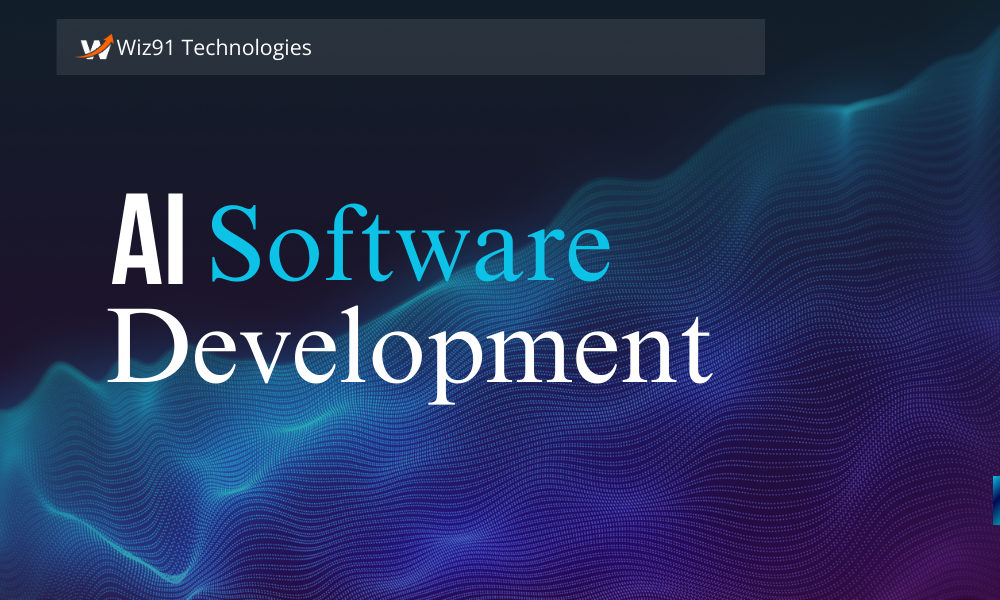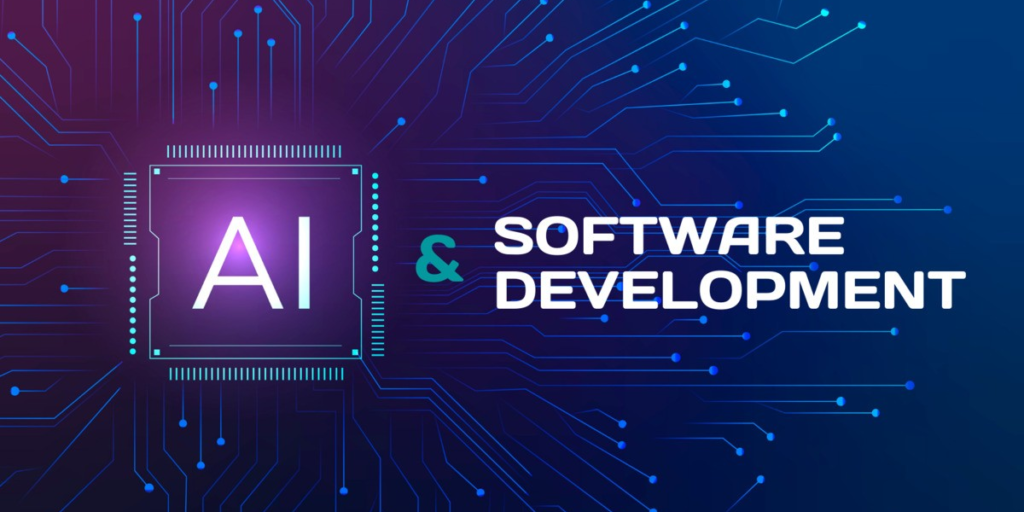In the dynamic realm of AI software development, the quest for efficiency and precision is perpetual. Traditionally, crafting code has been a labor-intensive endeavor, prone to human error and time constraints. However, the emergence of Artificial Intelligence (AI) heralds a new era, offering innovative solutions to expedite processes and elevate accuracy. Among its transformative capabilities, AI’s role in automating code generation and fortifying bug detection stands out as a beacon of progress. Let’s embark on a journey to explore how AI is reshaping software development through these pivotal advancements.
The Evolution of AI Software Development
AI’s integration into software development is not a sudden phenomenon; it’s the result of years of advancements in machine learning (ML), natural language processing (NLP), and data analytics. Initially, AI software development was used for basic tasks like auto-completion of code or suggesting improvements. However, with the advent of more sophisticated AI models like OpenAI’s GPT-4 and advancements in deep learning, the capabilities have expanded significantly.
AI-Powered Code Generation
One of the most groundbreaking applications of AI software development is automated code generation. Traditionally, writing code requires an in-depth understanding of programming languages, algorithms, and software architecture. AI models, trained on vast repositories of existing code, can now generate code snippets, functions, or even entire modules based on high-level descriptions provided by developers.
How AI Software Development Works
1. Training Data: AI models are trained on extensive datasets comprising diverse codebases. This training allows the AI to understand syntax, semantics, and common patterns in various programming languages.
2. Input Processing: Developers provide a description or a set of requirements for a feature or function. For instance, a developer might input, “Generate a function to sort an array of integers using quicksort.”
3. Code Generation: The AI processes the input and generates the corresponding code. Advanced models like GPT-4 can even understand context and generate code that adheres to the project’s coding standards and practices.
4. Iteration and Feedback: Developers can review, test, and provide feedback on the generated code, allowing the AI to refine its outputs over time.
Benefits of AI software development
– Efficiency: AI-generated code can significantly reduce the time developers spend on writing boilerplate or repetitive code, allowing them to focus on more complex and creative tasks.
– Consistency: AI ensures consistent coding practices across a project, reducing the risk of human error and enhancing maintainability.
– Accessibility: Non-experts or beginners can leverage AI to generate code, lowering the barrier to entry for software development.

AI-Enhanced Bug Detection
Bug detection is another critical area where AI software development is making substantial contributions. Traditional bug detection relies heavily on manual code reviews and testing, which can be time-consuming and prone to oversight. AI-powered tools can analyze codebases more efficiently and identify potential issues with higher accuracy.
How It Works
1. Static Analysis: AI tools analyze the code without executing it, looking for syntax errors, potential bugs, and code smells. This involves examining the code structure, variable usage, and control flow.
2. Dynamic Analysis: Some AI tools can also execute code in a controlled environment to monitor its behavior and identify runtime issues such as memory leaks, race conditions, and logical errors.
3. Pattern Recognition: AI models are trained to recognize patterns associated with common bugs and vulnerabilities. For example, they can identify insecure coding practices that could lead to security breaches.
4. Continuous Learning: AI systems continuously learn from new data, including bug reports and fixes, improving their detection capabilities over time.
Benefits
– Early Detection: AI software development can identify potential issues early in the development process, reducing the cost and effort required to fix them later.
– Comprehensive Coverage: AI software development tools can analyze large codebases more thoroughly than human reviewers, ensuring that even the most minor issues are detected.
– Improved Security: By identifying security vulnerabilities early, AI helps in building more secure software, which is crucial in today’s threat landscape.
Future Implications
The integration of AI in software development is poised to bring even more transformative changes. As AI models become more advanced and datasets more comprehensive, we can expect even higher levels of automation and accuracy. Here are some potential future developments:
– Intelligent Code Assistants: AI could evolve into more interactive assistants that not only generate code but also provide real-time suggestions, debug complex issues, and optimize performance.
– End-to-End Development: From requirements gathering to deployment, AI could potentially handle the entire software development lifecycle, drastically reducing development times.
– Personalized Learning: AI-driven platforms could offer personalized learning and development environments tailored to individual developers’ skill levels and preferences.
Conclusion
AI is revolutionizing software development by automating code generation and enhancing bug detection capabilities. By leveraging natural language processing, machine learning, and automated testing techniques, developers can streamline the development process, reduce time-to-market, and deliver higher-quality software products.
As AI continues to evolve, we can expect further advancements in these areas, ultimately reshaping the software development landscape and empowering developers to build more robust and reliable software systems. Embracing AI-powered tools and methodologies will be crucial for staying competitive in the ever-evolving world of software engineering.










